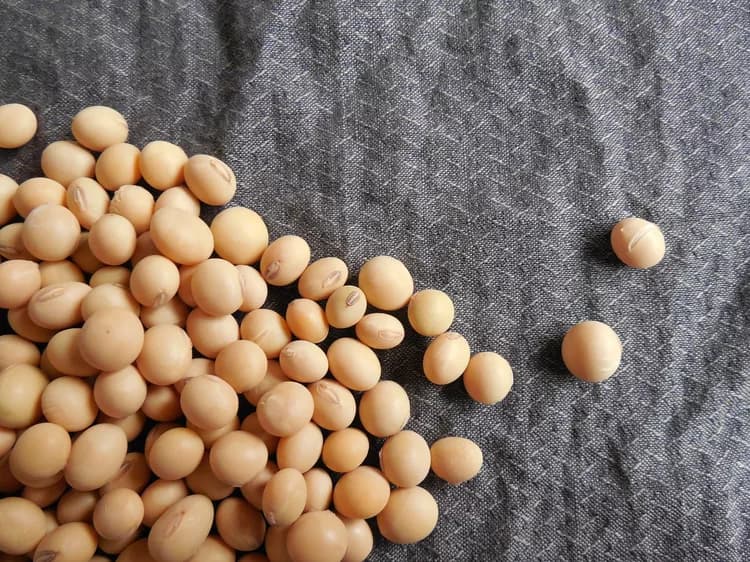
Soy May Help Protect Women With PCOS From Diabetes, Heart Disease
Women who have polycystic ovary syndrome (PCOS) -- a common cause of female infertility -- may be able to improve their metabolic and cardiovascular health by consuming soy isoflavones, according to a new study published in the Endocrine Society's Journal of Clinical Endocrinology & Metabolism.
Soy isoflavones are naturally occurring plant-based estrogens found in the soybean plant. They are found in foods such as soy milk, as well as supplements.
The study examined how a diet containing soy isoflavones could benefit women with PCOS -- a condition that affects an estimated 5 million to 6 million women in the United States.
Among the most common hormone disorders in women of reproductive age, PCOS occurs when a women's body produces slightly higher amounts of testosterone and other androgen hormones -- sex hormones typically associated with men, but also found in women -- than normal. The resulting hormone imbalance can cause irregular or absent menstrual periods, infertility, weight gain, acne, excess hair on the face and body, or thinning hair on the scalp. Women who have PCOS also face a higher risk of developing other health problems, including diabetes and coronary heart disease.
"Our research found that women who have PCOS may benefit from incorporating soy isoflavones in their diets," said the study's first author, Zatollah Asemi, PhD, of Kashan University of Medical Sciences in Kashan, Iran. "In the first study to examine the connection, we found women who consumed soy isoflavones regularly saw improvement in biological markers that reflect how effectively the body utilizes insulin to process sugars and had reduced levels of harmful cholesterol."
Seventy women who were between the ages of 18 and 40 and had PCOS participated in the prospective randomized double-blind, placebo-controlled clinical trial. The women were referred to the Kosar Clinic in Arak, Iran, between December 2015 and February 2016.
Half of the women were randomly assigned to take a daily 50 mg/d soy isoflavone supplement daily for 12 weeks. This amount is equivalent to the amount of soy isoflavones in 500 milliliters of soy milk. The other 35 participants received a placebo. Participants were instructed to maintain current levels of exercise and to avoid taking other nutritional supplements during the study.
Blood samples were taken from the women at the beginning and end of the study. The blood samples were analyzed to measure hormone and lipid levels, as well as biomarkers of insulin resistance and inflammation.
In comparison to the placebo group, women who received soy isoflavones had lower levels of circulating insulin in the blood and other biological markers associated with insulin resistance -- a condition where the body doesn't use insulin to process sugars effectively and that can lead to Type 2 diabetes. The researchers also found women who took soy isoflavone supplements tended to have lower levels of testosterone, harmful cholesterol known as LDL and triglycerides, or fats in the blood, than their counterparts who received the placebo.
"There is growing interest in how adding soy to the diet can help address metabolic syndrome and related health conditions," Asemi said. "Our findings indicate consuming soy isoflavone regularly may help women with PCOS improve their metabolic and cardiovascular health."
The above post is reprinted from materials provided by The Endocrine Society. Note: Content may be edited for style and length.
Disclaimer: DoveMed is not responsible for the adapted accuracy of news releases posted to DoveMed by contributing universities and institutions.
Primary Resource:
Jamilian, M., & Asemi, Z. (2016). The Effects of Soy Isoflavones on Metabolic Status of Patients With Polycystic Ovary Syndrome. The Journal of Clinical Endocrinology & Metabolism, jc-2016.
Related Articles
Test Your Knowledge
Asked by users
Related Centers
Related Specialties
Related Physicians
Related Procedures
Related Resources
Join DoveHubs
and connect with fellow professionals

0 Comments
Please log in to post a comment.